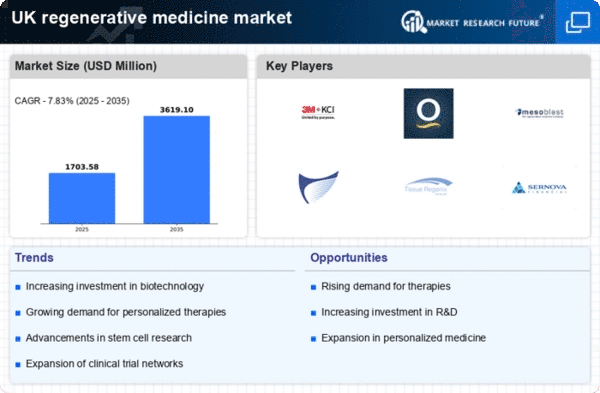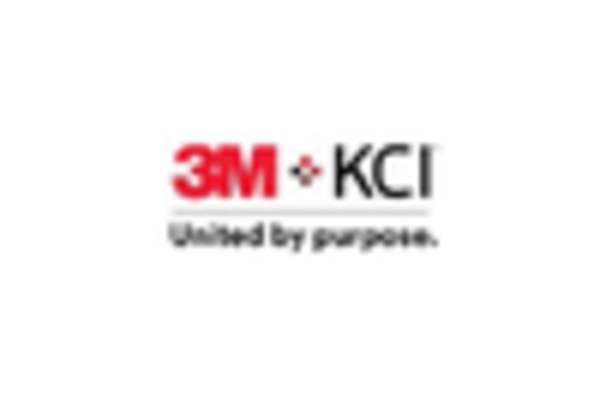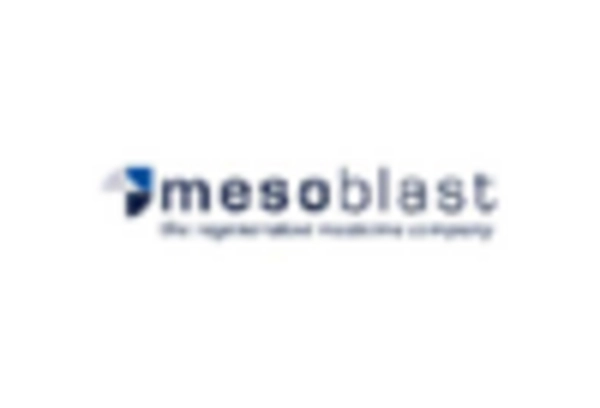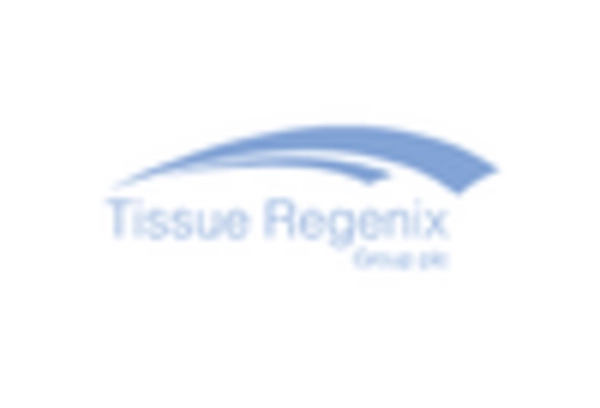Supportive Regulatory Framework
The regulatory environment in the UK is increasingly supportive of advancements in the regenerative medicine market. The Medicines and Healthcare products Regulatory Agency (MHRA) has established guidelines that facilitate the approval and commercialization of innovative therapies. This regulatory support is crucial for fostering research and development in regenerative medicine, as it provides a clear pathway for bringing new treatments to market. Furthermore, the UK government has invested in initiatives aimed at streamlining the regulatory process, which may enhance the competitiveness of the regenerative medicine sector. As a result, companies are more likely to invest in the development of cutting-edge therapies, knowing that there is a supportive framework in place. This conducive environment is expected to stimulate growth in the regenerative medicine market, encouraging innovation and attracting investment.
Rising Prevalence of Chronic Diseases
The increasing incidence of chronic diseases in the UK is a pivotal driver for the regenerative medicine market. Conditions such as diabetes, cardiovascular diseases, and neurodegenerative disorders are becoming more prevalent, necessitating innovative treatment solutions. According to recent data, chronic diseases account for approximately 70% of all deaths in the UK, highlighting the urgent need for effective therapies. Regenerative medicine offers potential breakthroughs in treating these conditions by repairing or replacing damaged tissues and organs. This growing demand for advanced treatment options is likely to propel investments in regenerative medicine, fostering the development of novel therapies and technologies. As healthcare providers seek to improve patient outcomes, the regenerative medicine market is expected to expand significantly, driven by the need to address the challenges posed by chronic diseases.
Increasing Public Awareness and Acceptance
Public awareness and acceptance of regenerative medicine are on the rise in the UK, which is a crucial driver for the market. As more information becomes available through media and educational campaigns, patients are becoming increasingly informed about the potential benefits of regenerative therapies. This growing awareness is likely to lead to higher demand for innovative treatments, as patients seek alternatives to traditional therapies. Additionally, the success stories of patients who have benefited from regenerative medicine are contributing to a positive perception of these therapies. As acceptance grows, healthcare providers may be more inclined to incorporate regenerative treatments into their practice, further driving market growth. The regenerative medicine market stands to benefit from this shift in public perception, as it encourages investment and research into new therapeutic options.
Technological Advancements in Cell Therapy
Technological innovations in cell therapy are significantly influencing the regenerative medicine market. The development of advanced techniques, such as induced pluripotent stem cells (iPSCs) and mesenchymal stem cells (MSCs), has opened new avenues for treatment. These technologies enable the generation of patient-specific cells, which can be used for personalized therapies. The UK has seen a surge in research initiatives focusing on these technologies, with funding from both public and private sectors. For instance, the UK Stem Cell Bank plays a vital role in supporting research and development in this area. As these technologies continue to evolve, they are likely to enhance the efficacy of regenerative treatments, thereby driving growth in the market. The potential for cell-based therapies to address previously untreatable conditions positions the regenerative medicine market for substantial expansion.
Collaboration Between Academia and Industry
The collaboration between academic institutions and industry players is a significant driver of the regenerative medicine market. In the UK, partnerships between universities and biotech companies are fostering innovation and accelerating the development of new therapies. These collaborations often result in the sharing of resources, expertise, and funding, which can enhance research outcomes. For instance, joint ventures may lead to the commercialization of groundbreaking therapies that emerge from academic research. The UK government has also recognized the importance of these partnerships, providing funding and support to encourage collaboration. As a result, the regenerative medicine market is likely to experience accelerated growth, driven by the synergy between academic research and industry application. This collaborative approach not only enhances the development of new treatments but also strengthens the overall ecosystem of the regenerative medicine market.
















